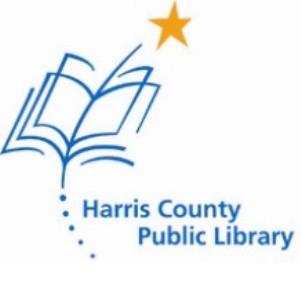 The Harris County Public Library (HCPL) in Houston is developing a library-owned, library-managed ebook platform similar to the system pioneered by Colorado’s Douglas County Libraries (DCL), according to HCPL’s Coordinator for Marketing and Programming Linda Stevens and Multimedia Selection Librarian Michael Saperstein.
The Harris County Public Library (HCPL) in Houston is developing a library-owned, library-managed ebook platform similar to the system pioneered by Colorado’s Douglas County Libraries (DCL), according to HCPL’s Coordinator for Marketing and Programming Linda Stevens and Multimedia Selection Librarian Michael Saperstein.
The 26-branch library will continue offering patrons ebooks through its existing relationship with OverDrive, but Stevens explained that HCPL had decided to explore a model where they weren’t “putting all our ebook eggs in one basket” by licensing content from ebook distributors.
“It’s a time that’s really that’s ripe for experimentation, because everybody is trying to figure out what to do and what path should we follow,” she said.
Inspired by the project that DCL launched last year, Saperstein initially broached the subject with HCPL Director Rhoda Goldberg while they were working together on a conference speech at the beginning of 2012.
“She liked the idea, and encouraged us to continue looking into it,” he said.
After discussing the project with several people at DCL, including Monique Sendze, who was then DCL’s associate director of information technology, Saperstein and Stevens began working on a plan to set up an Adobe Content Server and begin buying ebooks direct from publishers and self-published authors.
“Within the last three months or so, we’ve been working steadily toward achieving the goal of making this live,” Saperstein said.
The project does pose challenges. It is time consuming, not only for a library’s IT department, but also for its acquisition department, which must contact small publishers and even individual authors to negotiate agreements. HCPL currently doesn’t have a department that can write tailored code for the new system, so for now they will be working with what other library systems have developed.
“Just the time requirement is huge,” Saperstein said. “And…we’ve got to rethink how we’re looking at collection development.”
HCPL has started the collection with a focus on fiction, top self-published authors, and local authors. Since it is often a challenge to find reviews for e-originals and self-published ebooks, Stevens said that an ebook’s commercial sales could also be a factor determining whether it would be popular with HCPL’s patrons. Saperstein added that the Colorado State Library’s Evoke site has been helpful as well, featuring “how to” tips from DCL, along with a communal, annotated list of publishers willing to sell ebooks directly to libraries.
Of course, the payoff for all of this work is an ebook collection that the library owns and can seamlessly lend to its patrons through its OPAC in perpetuity, without worrying about rising licensing fees or changing terms from ebook aggregators and distributors. A growing number of independent authors and small publishing houses are willing to work with this model.
For example, J. A. Konrath was the first author that HCPL contacted, and he offered very generous terms, writing on his blog last month that after talking with HCPL, he now plans to offer every title in his ebook catalog to any library for $3.99 per DRM-free copy. Libraries can lend these titles to as many simultaneous users as they want, and are free to convert the title into any format—current or future—that they need for their patrons.
“My hope is because I don’t have restrictions, and keep my costs low, the library will continue to buy my new ebooks as I release them,” Konrath explains during a blog Q&A. “There are a lot of libraries in the US, and a lot more globally. If I sell every library one of my ebooks for $3.99, that’s a nice amount of money.”
For now, HCPL will allow authors and publishers to set their own pricing and lending terms, whether they prefer a one-book, one-user model, or the unrestricted model that Konrath allows. Stevens said that they were contacted by several authors after Konrath’s late August post, and most of them were willing to match his terms.
With the ebook market still evolving, it is important for public libraries to build these types of relationships with authors and continue working in tandem with other libraries to develop this emerging ebook ownership model, Stevens said.
“This is something that we all need to be working on—providing a way for other libraries to take advantage, because the resources are not the same in every location” Stevens said. “If we can all start laying the groundwork for making this easier, it will help the whole [library] community.”


